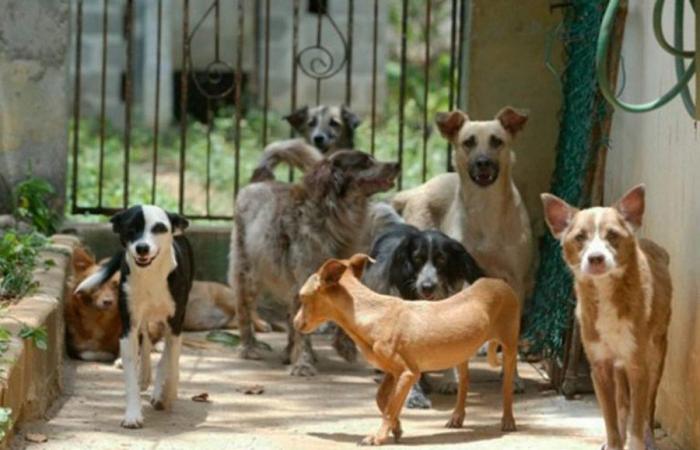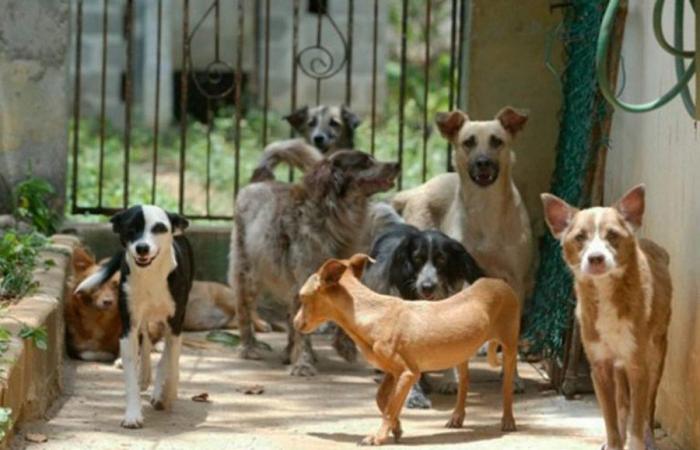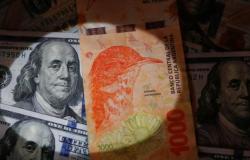The deep economic crisis that Cuba lives today also impacts the daily life of emotional animals.
Photo: IPS Cuba file
Havana, Apr 28. – Without an animal protection law, an old claim, and in a context of emigration, abandonment of pets and food shortage, this matter continues to worry animalists and protectors, which in their generality have to juggle to feed their own animals.
“Every day it is more complicated to feed them, there is almost no rice or is very expensive, there is no cornmeal, even the sweet potato has risen in price. That without counting the protein they need,” said Angélica Solís, owner of a dálmato and a chihuahua, resident in Havana.
For Liset Fernández, who takes care of two cats, there is also the issue of medicines and veterinarian’s consultations: “If you want them to serve you well, with all the exams they carry, almost never goes down from the thousands.”
Víctor Hernández collected Negrito from the street, whose owners emigrated. With some periodicity, it must take it to the veterinarian, either by a tumor that was removed in 2024 or due to skin or decay problems.
“when I see that it gets bad, I do not repair expenses, I am in the motorcycle and I take it where they recommend me is better attention, but I know that there are many people who even wanted, are not in a position to keep their pets,” says the young man, who has a night job in a cafeteria.
That is a reality of those who have pets today in Cuba, where human food is also a headache.
“If the situation is hard to feed people, animals cannot compete with that,” said Solís.
According to the National Office of Statistics and Information (Onei), last March, the price of a sweet potato pound, traditionally used in animal feed, oscillated in Havana between 45 and 150 pesos, according to the market.
-In the case of rice, that when there was a relative availability it was used as a pet food base, it fluctuated in the capital between 180 and 340 pesos.

The claims continue
In a recent space created in the Cubadebate site, María Gloria Vidal, referred to the history of animal protection, including an order signed during the US intervention, in May 1900 that established punishments for acts of abuse and abandonment of pets.
Although government perception about the need to address issues related to animal protection and well -being has evolved, from activism a law is still claimed, instead of the current Decree Law No. 31 of 2021, considering it insufficient, since much damage remains impunity.
In social networks these claims are published. Regarding the Dog Day, the Cuban Group in Defense of Animals (CEDA), listed several types of abuse: the dog they hit without consequences, the litter of cats that throw in the garbage dump, the horse under the sun to which they give lashes, the animals in precarious conditions in the zoos, hunted and trafficked birds, among others.
Therefore, Ceda published on Facebook, “wherever there is an animal in Cuba, it needs its basic needs and rights to improve and be defended. That is why we want an animal protection law that is applied and is more severe than the current decree law, which is not enough to reduce animal abuse.”

Anything to celebrate?
In that context, in Cuba, dog’s day was remembered, with the traditional pilgrimage to the tomb of Jeanette Ryder (1866-1931), a American philanthont that resided in the country until his death, remembered for his love towards animals and his work for his well-being and whose tomb has become a symbol of the struggle for animal rights.
On this occasion, Nora García was also remembered, who died last March, who for more than 25 years directed the Cuban association for the Protection of Animals and Plants (Aniplant), which was for many years the only association of its legally recognized type in Cuba.
With a presence of protectors, animalists and activists less than previous years, in the ceremony representatives of the animalist community of Cuba behaved posters with the phrase: Animal Protection Law. No more delay.
On this occasion, to the call of Aniplant, which has as its relationship body to the Ministry of Agriculture, representatives of organizations such as Animal Production and Agricultural and Forestry Technicians Associations, among others.
Currently, Aniplant periodically develops days of internal and external deworming, vaccination, nail cutting, ears cleaning, in different municipalities; A practice that for years developed independent groups systematically at their adoption fairs, which had a great call. (2025)







